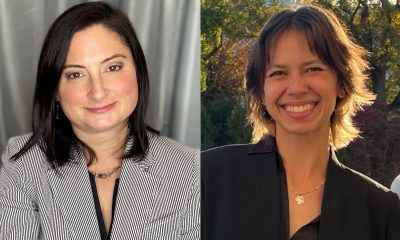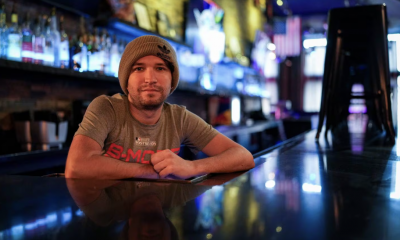News
Support for marriage equality in Utah at record high
41 percent of residents supported gay nuptials prior to stay
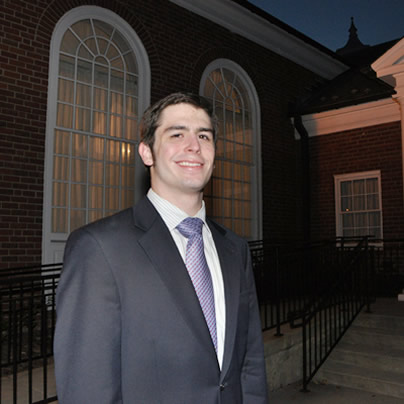
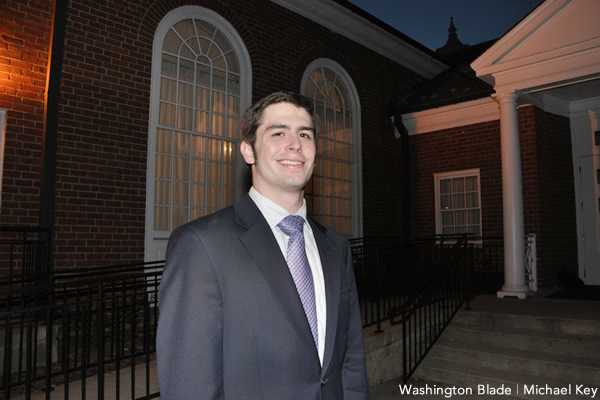
David Baker commissioned a poll with Google revealing support for marriage equality in Utah was at an all-time high. (Washington Blade file photo by Michael Key)
A recent consumer survey conducted in Utah reveals that support for same-sex marriage in the state was at an all-time high last week just before the Supreme Court halted the weddings with a stay.
The poll, conducted using Google’s digital platform polling system, found that support for same-sex marriage reached 41 percent as of last week. Although the poll shows a majority of Utah voters have yet to embrace marriage equality, the result demonstrates a 13-point increase in support over two years when compared to an earlier poll from Brigham Young University.
David Baker, a Mormon and gay D.C. activist, said he ran the poll in the aftermath of the federal district court ruling in Utah in favor of marriage equality for more updated data on the state’s support for same-sex nuptials.
“I conducted the poll because the latest data out of Utah is almost two years old and it had been almost two weeks since the District court ruling,” Baker said. “I knew that Google’s tool would get me statistically significant results in a few days so I ran the poll as a private citizen.”
The questioning in the survey is based on similar polls that Brigham Young University’s Center for the Study of Elections & Democracy conducted on marriage equality in 2004, 2009, 2010 and 2012. The 2012 poll found that just 28 percent of Utah residents supported marriage equality, 43 percent supported only civil unions and 29 percent wanted no legal recognition for same-sex couples.
The 13-point jump in the more recent survey compared to the most recent BYU poll reveals that new support for marriage equality came entirely from those who previously supported only civil unions. Opposition to marriage equality also grew from 29 percent to 31 percent.
Baker said he thinks the poll demonstrates a shift in opinion among Utah voters to support same-sex marriage following the U.S. Supreme Court’s decision in June against Section 3 of the Defense of Marriage Act.
“A 13-point bump signifies that Utah voters realize the world hasn’t ended with the repeal of DOMA and recognizing same-sex marriages is the right thing to do,” Baker said.
The Washington Blade is unaware of any other recent polling on same-sex marriage in Utah in the aftermath of the district court ruling besides the consumer poll.
Google consumer surveys are deemed accurate by statistics experts. As Baker notes in his blog posting in which he published the poll results, statistics guru Nate Silver ranked them second overall in terms of reliability and lack of bias during the 2012 presidential election.
Scott Barclay, a senior scholar in public policy at the Williams Institute at University of California, Los Angeles, said the new poll is consistent with earlier public opinion estimates on rising support for marriage equality throughout the states.
“Support for marriage equality generally has been consistently rising in the last 20 years, but current research at the Williams Institute finds that the rate of support for marriage equality at both the national level and within almost all states appears to be increasing much more rapidly in the last four years than at any previous point in time,” Barclay said.
A Williams Institute survey, which didn’t include a question on civil unions, found that support in 2012 for same-sex marriage in Utah was at 36 percent —slightly higher than the result from BYU in the same year.
Barclay said there’s good evidence that public opinion surveys that include the option of civil unions alongside marriage equality actually underestimate the level of support in the general population for marriage equality.
Moreover, Barclay said it’s no surprise that increased support for marriage equality in the new poll comes entirely from people who previously supported only civil unions.
“As reflected in the current poll result, existing research shows that support for civil unions has generally declined as marriage equality has emerged as the popularly accepted form of state recognition,” Barclay said. “Individuals who identify as conservative are the most likely to continue to support civil unions.”
The new poll includes increased support from younger people relative to other groups, which, given recent attitudes on marriage equality, could shift the result more in favor of marriage equality. However, Barclay said he was able to achieve the same result by weighting the survey for a more balanced look.
“We used a statistical technique to apply population weights (based on the current information from the Current Population Survey of the Census) to the reported survey and the newly weighted version yielded a very similar result [at 41 percent support for marriage equality],” Barclay said.
The poll shows growing support for marriage equality in Utah just as other polls have revealed increased support for gay nuptials nationwide. A widely cited poll in March 2013 from Washington Post-ABC News found 58 percent of Americans support marriage equality.
Evan Wolfson, president of Freedom to Marry, spoke broadly about the growing support for marriage equality when asked to comment on the significance of the recent Utah survey.
“Support for the freedom to marry is accelerating in Utah, as in the rest of the country — and for the same reason,” Wolfson said. “As people get to know more about gay people’s lives and families, engage in conversations about gay people and why marriage matters, and think about values such as the Golden Rule of treating others as you’d want to be treated, hearts open and minds change.”
It remains to be seen whether the stay on same-sex marriage in Utah will have an impact on support for same-sex marriage in the state.
Baker said he hasn’t yet decided on whether to do another poll.
“I hadn’t planned on one just yet as I don’t think the stay is going to influence opinion,” Baker said. “I might do one that doesn’t have civil unions as an option to see where things stand there.”
News
News is Out, Word In Black and Comcast NBCUniversal welcomes 16 journalism fellows to cover Black and LGBTQ+ communities
The fellows will receive best practices, learnings and mentorship from journalists and media professionals at News is Out, Word In Black and NBCUniversal.
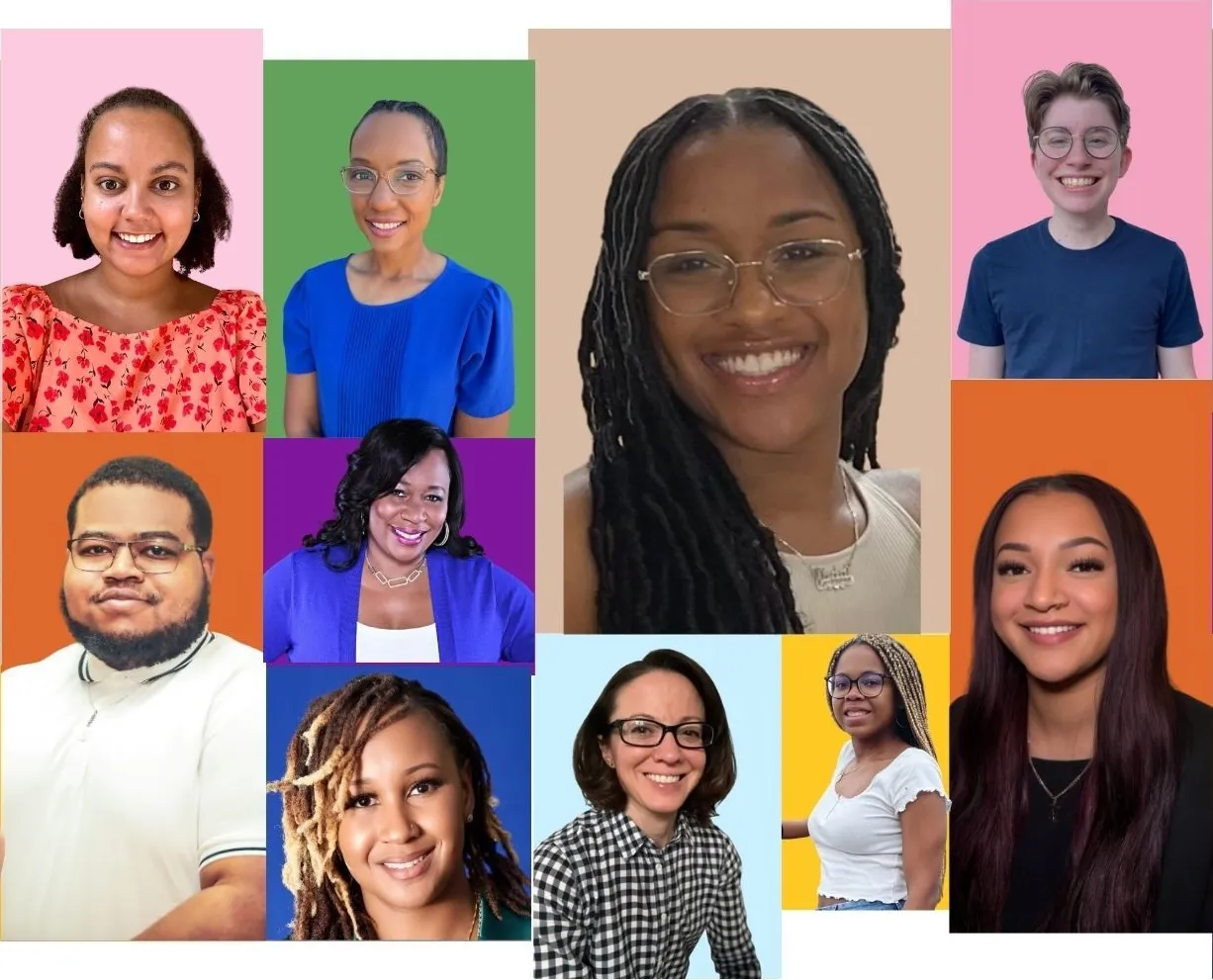
Today, News is Out and Word In Black, together announced the 16 fellows selected for The Digital Equity Local Voices Lab, a new initiative powered by Comcast NBCUniversal to place journalists at 16 Black and LGBTQ+ serving news publications across the country. During the year-long fellowship, the group will receive the training and resources needed to tell stories within marginalized communities through media and technology and celebrate the work being done by Black and LGBTQ+ leaders in their communities.
“Through Project UP, we are proud to donate $1 million to launch this unique, first-of-its-kind program that will support coverage of Black and LGBTQ+ topics in the media as well as emerging journalists with a passion for reporting on issues of importance to these communities,” said Dalila Wilson-Scott, EVP and Chief Diversity Officer, Comcast Corporation and President, Comcast NBCUniversal Foundation.
“Comcast is one of the earliest corporate leaders in LGBTQ+ inclusion, so it should come as no surprise that they understand the value of local LGBTQ+ media,” said Mark Segal, founder of the Philadelphia Gay News and member of News is Out. “Their investment in our growth is also an investment in the future leadership of LGBT media and intersectional LGBTQ+ media.”
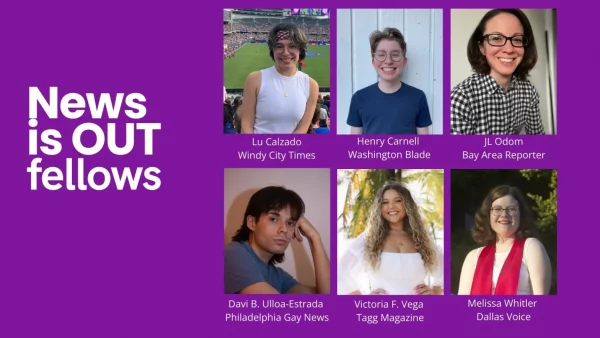
The fellows will receive best practices, learnings and mentorship from journalists and media professionals at News is Out, Word In Black and NBCUniversal. In addition, they will report on stories of Black and LGBTQ+ entrepreneurs and creatives in their communities, share training and resources on using technology more in their daily lives, report on policy related to technological access and connectivity, and share the work being done to advance digital equity.
“I am excited to be a part of a fellowship that is specifically geared toward the promotion of diversity, inclusivity and intersectionality,” said Davi B. Ulloa-Estrada, News is Out and Philadelphia Gay News fellow. “We are missing such crucial and different perspectives on world issues, so I look forward to being a part of this project.”
“This fellowship program is the epitome of what journalism means to me – using innovation and creativity to fuel a passion for multimedia storytelling and uplift the voice and perspective of the overlooked,” said Word In Black and Washington Informer fellow, Jada Ingleton. “It means so much to know that I’ll be in a position to produce stories that could enact change and affect lives the same way generations of journalists impacted mine.”
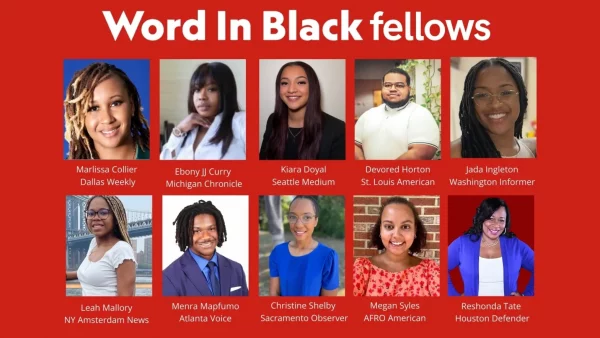
The Local Media Foundation (LMF) is managing the fellowship and Lab and facilitating content creation to reach diverse audiences between the 16 publishers, Comcast NBCUniversal and NBCU Academy. Word In Black and News is Out are collaboratives that were launched by LMF.
The 16 fellows are:
- Megan Sayles, AFRO News (Baltimore)
- Menra Mapfumo, The Atlanta Voice (Atlanta)
- J.L. Odom, Bay Area Reporter (San Francisco)
- Melissa Whitler, Dallas Voice (Dallas)
- Marlissa Collier, Dallas Weekly (Dallas)
- ReShonda Tate, Houston Defender (Houston)
- Ebony “JJ” Curry, Michigan Chronicle (Detroit)
- Leah Mallory, New York Amsterdam News (New York City)
- Davi B. Ulloa-Estrada, Philadelphia Gay News (Philadelphia)
- Christine Shelby, The Sacramento Observer (Sacramento)
- Kira Doyle, Seattle Medium (Seattle)
- Devored Horton, The St. Louis American (St. Louis)
- Victoria F. Vega, Tagg Magazine (National)
- Henry Carnell, Washington Blade (Washington, D.C.)
- Jada Ingleton, The Washington Informer (Washington, D.C.)
- Lu Calzada, Windy City Times (Chicago)
In February, the three organizations announced the launch of The Digital Equity Local Voices Lab and application period. The Lab is part of Project UP, Comcast’s $1 billion initiative to connect people to the Internet and advance digital equity and economic mobility through programs and community partnerships that open doors for the next generation of innovators, entrepreneurs, storytellers, and creators across Comcast, NBCUniversal, and Sky.
India
Indian political parties for the first time include LGBTQ rights in election platforms
Voters will begin to cast ballots on April 19

The world’s largest democratic exercise will begin in India on April 19 as citizens begin to cast their votes in the country’s election.
This year’s election is different because national level political parties for the first time are promising to extend marriage rights to same-sex couples as part of their election platforms.
The Indian National Congress, one of India’s oldest political parties, promised after wide consultation that it would introduce a bill that would recognize civil unions between couples who are part of the LGBTQ community. The party, which has governed India for the majority of the period since independence from the U.K. in 1947, has refrained from taking a stance on laws that include Section 377, which criminalized consensual same-sex sexual relations.
Then-Health Minister Gulam Nabi Azad in 2011 when the INC was in power said homosexuality is a disease. He made the controversial comment while speaking at an HIV/AIDS conference in New Delhi, the Indian capital.
“Unfortunately, this disease has come to our country too,” said Azad. “Where a man has sex with another man, which is completely unnatural and should not happen but does.”
When the Delhi High Court was hearing the Naz Foundation case, the Home Affairs Ministry opposed the striking down of Section 377 based on its belief that homosexuality cannot be morally condoned. The INC never struck down Section 377, which criminalized homosexuality, in parliament.
A 5-judge panel on the Supreme Court on Sept. 6, 2018, decriminalized consensual same-sex sexual relations.
The Communist Party of India (Marxist) on April 4 unveiled its platform with a range of socialist commitments, including support for LGBTQ rights. Among these pledges is to amend the Transgender Persons (Protection of Rights) Act 2019 to address community concerns and ensure legal recognition and protection for same-sex couples akin to marriage.
The platform also outlined plans to introduce a bill similar to the Special Marriage Act of 1954, which allows partners to be listed as dependents and facilitating like inheritance, alimony in the event of divorce and other issues. The party further pledged to enact a comprehensive anti-discriminatory bill that would include LGBTQ people, ensure quotas in educational institutions and implement horizontal reservations in employment.
Addressing the issue of crimes against LGBTQ people, the platform promised to treat such offenses on par with crimes against heterosexuals. The platform also calls for tackling bullying, violence and harassment of gender non-conforming and LGBTQ people in educational settings, enforcing anti-hazing policies and combating hazing based on sexual orientation and gender identity.
The platform further touched issues related to transition and informed consent.
The Special Marriage Act of 1954 is a law that provides for civil unions among Indians and Indian nationals who live abroad, regardless of the religion or faith followed by either party. This law enables people from two different religious backgrounds to enter into marriage. Parliament in 2019 passed the Transgender Persons (Protection of Rights) Act that extended rights to trans people.
Brinda Karat, a former member of the Rajya Sabha, the upper house of the Indian Parliament, and leader of the Communist Party of India (Marxist), spoke with the Washington Blade and said the current government has homophobic ideas that are not acceptable to the party.
The ruling government under Prime Minister Narendra Modi is striving to secure more than 400 parliament seats in the upcoming election, aiming for a substantial majority.
Various polls conducted by Indian news organizations indicate a probable victory for the ruling Bharatiya Janata Party. In response to the BJP’s dominance, Congress and several national and regional parties have joined forces as the Indian National Developmental Inclusive Alliance.
This alliance comprises 26 opposition political parties. Despite its formation, however, there is no clear coalition strategy in place and only two parties have included LGBTQ-specific policies in their election platforms.
The Blade reached out to Congress’ spokesperson for comment, but has not received a response. The BJP also did not respond to a request for comment.
The party has yet to release its election platform.
Ankush Kumar is a reporter who has covered many stories for Washington and Los Angeles Blades from Iran, India and Singapore. He recently reported for the Daily Beast. He can be reached at [email protected]. He is on Twitter at @mohitkopinion.
Africa
Ugandan activists appeal ruling that upheld Anti-Homosexuality Act
Country’s Constitutional Court refused to ‘nullify’ law

Twenty-two LGBTQ activists in Uganda have appealed this month’s ruling that upheld the country’s Anti-Homosexuality Act.
The Constitutional Court on April 3 refused to “nullify the Anti-Homosexuality Act in its totality.”
President Yoweri Museveni last May signed the law, which contains a death penalty provision for “aggravated homosexuality.”
The U.S. subsequently imposed visa restrictions on Ugandan officials and removed the country from a program that allows sub-Saharan African countries to trade duty-free with the U.S. The World Bank Group also announced the suspension of new loans to Uganda.
Media reports indicate Sexual Minorities Uganda Executive Director Frank Mugisha and Jacqueline Kasha Nabagesara are among the activists who filed the appeal.
-

 LGBTQ Non-Profit Organizations5 days ago
LGBTQ Non-Profit Organizations5 days agoDay of [no] silence, a call to speak out against anti-LGBTQ+ hate
-

 Africa1 day ago
Africa1 day agoCongolese lawmaker introduces anti-homosexuality bill
-

 Colorado3 days ago
Colorado3 days agoFive transgender, nonbinary ICE detainees allege mistreatment at Colo. detention center
-

 South America5 days ago
South America5 days agoMan convicted of killing Daniel Zamudio in Chile seeks parole



